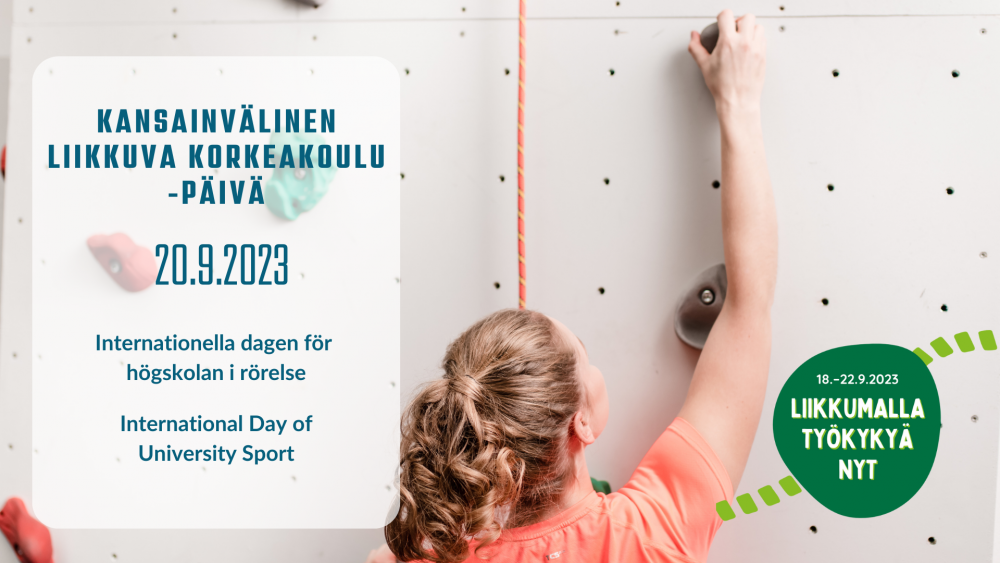Miia Puustinen: What is the smallest thing you can do in a day to maintain your wellbeing and ability to study?

You know that feeling when, after hours of sitting and staring at a screen, all you want to do is throw yourself on the sofa, curl up in the foetal position, give your brain cells a rest and chill out to Netflix? So do I. And there’s nothing wrong with it. Indeed, you should do this – rest and recovery are vital in a hectic world that is constantly demanding more and more, faster and faster.
This can become problematic if not being on the move is a person’s only way of recharging their batteries. The body slips from inactivity into a kind of sleep-wake state, where the effects of immobility start to affect the brain and impair physical and mental wellbeing. They hamper the ability to study and cope, not to mention the quality of sleep.
According to the latest Finnish Student Health and Wellbeing Survey (KOTT 2021), the amount of time students spend sitting each day is rising every year, and now averages more than 11 hours a day. 41 per cent of students sit for more than 12 hours a day. The same study also found that less than half of students get the recommended amount of everyday physical activity. In my own practice, when I talk to students I often find that they almost invariably sit for hours on end without any breaks.
Regular physical activity has an absolutely undeniable impact on overall wellbeing and learning ability. Physical activities create a sense of achievement and provide meaningful things to do together.
But did you know that even small amounts of activity during the day are enough to make you feel better, and even a single exercise session can bring immediate health benefits and increase wellbeing? A short few minutes of exercise, such as a few stretches or a bit of brisk movement around your house, will also boost learning and concentration by improving blood flow to the brain and increasing oxygen intake.
University sports services are there specifically for students. They provide individual support to students, both in increasing their amount of physical activity in everyday life and in matters related to sports and other physical activities. There are as many individual physical activity needs as there are students, and with a professional you can find the right way to exercise during your studies.
Sleep, exercise, nutrition and social relationships – you need them all!
Miia Puustinen, physiotherapist FSHS
You may also be interested in
-
The Finnish Student Sports Federation invites students to test their exercise habits and study ability
Published:The Finnish Student Sports Federation (OLL) is reminding people in September and October of the importance exercise in maintaining and improving study ability.
-
Advocacy pays off: One million euros for promoting sports and physical activity in higher education
Published:The Finnish Student Sports Federation (OLL) is pleased with the funding of the Finland on the Move programme for higher education institutions. In April 2024, the Ministry of Education and Culture will provide a state grant for the academic year 2024–2025 to a maximum value of one million euros for the implementation of the Students on the Move programme in higher education institutions.
-
University heads responded to the challenge – OLL President to Yle: “Routines for physical activity are already formed during the years of study”
Published:OLL challenged the heads of universities and universities of applied sciences to think about how the physical activity of higher-education students could be increased and how students could be encouraged to adopt a physically active lifestyle during their studies. University heads across Finland took up on the challenge presented as part of the European Week of Sport.
Share this page
Page last updated 18.9.2023
